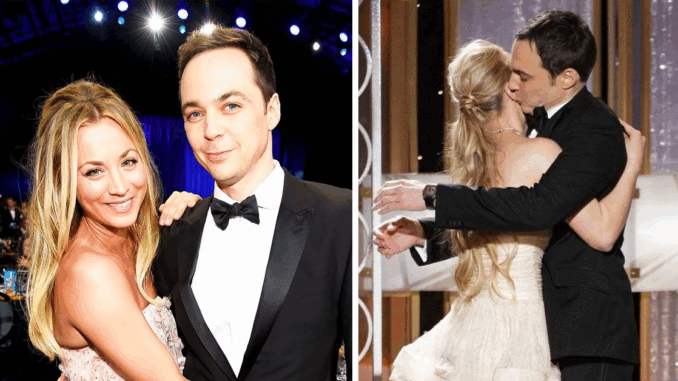
The Big Bang Theory delighted audiences for twelve seasons with its unique blend of science, pop culture, and quirky romance. Among its most cherished pairings was the unlikely friendship, and eventual marriage, between Sheldon Cooper and Penny, portrayed by Jim Parsons and Kaley Cuoco, respectively. Their dynamic evolved beautifully, culminating in numerous iconic scenes. One particularly memorable moment, an impromptu kiss between the characters, became a fan favorite. However, what viewers saw as a heartwarming display of evolving affection actually led to an unforeseen legal battle that nobody anticipated.

The scene in question occurred during an early season, long before Sheldon and Penny’s relationship deepened into romance. It was a spontaneous gesture that, while endearing to fans, seemingly stepped on the toes of another performer. While the on-screen chemistry between Parsons and Cuoco was undeniable and lauded by critics and viewers alike, the unscripted nature of this particular moment—where Sheldon unexpectedly kisses Penny—reportedly mirrored a performance piece by an artist who subsequently claimed copyright infringement.
Details of the lawsuit were initially kept under wraps, but reports eventually surfaced about the claim against Warner Bros. Television, the studio behind The Big Bang Theory. The core of the complaint centered on the argument that the specific manner, context, and comedic timing of the on-screen kiss bore too close a resemblance to a pre-existing, copyrighted performance art piece. This claim highlighted the increasingly complex legal landscape surrounding creative works, where even seemingly innocuous gestures can become grounds for litigation.
The news came as a shock to the cast and crew, who had always operated under the assumption that their creative process was original and collaborative. For fans, it was a bewildering development, casting a shadow over a moment that was widely celebrated for its charm and humor. The lawsuit served as a stark reminder that in the world of entertainment, inspiration can be a double-edged sword, and the line between homage and infringement can sometimes be fiercely debated. While the specifics of the lawsuit’s resolution were not widely publicized, it underscored the pervasive need for studios to meticulously vet all aspects of their productions to avoid such unexpected and costly legal entanglements. It remains a curious footnote in the otherwise stellar history of The Big Bang Theory, a show known more for its laughs than its legal battles.
